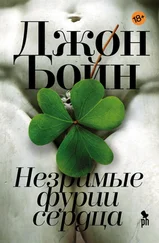The first I knew of any of this was during a lecture I was giving at Cambridge on Thomas Hardy. It was one that I had given many times in the past and I was interrupted halfway through when the door swung open to reveal a cameraman and a young news reporter who stormed towards the lectern without introduction to ask the question that I had been expecting for most of my adult life:
‘Professor Ackermann, do you have any reaction to claims by the novelist Maurice Swift that you wilfully sent two Jews to their deaths in the Nazi death camps in 1939 by reporting them to the SS, and also provided information that led to the murder of two other young people on the same night?’
The silence that filled the hall seemed to go on for a terribly long time. For me, it was like time itself had stood still. I looked down at my notes with a half-smile, and it was difficult not to feel the finality of the moment as I shuffled my papers and returned them to my satchel, glancing around the lecture theatre in the certain knowledge that I would never speak from that or any other dais again. Looking out at my students, I saw them staring back at me in a mixture of disbelief and confusion and my eyes settled on a girl whose hand was covering her mouth in shock. She was a mediocre student and I had recently given her a low grade for one of her essays, and I knew immediately that she would take pleasure in my downfall, revelling in the fact that she had been present to witness it. I was there , she would tell her friends. I was there when they confronted the old Nazi and told him they knew all the things he’d done. I wasn’t surprised. I could always tell that he was hiding something. He broke down and cried. He started screaming. It was horrible to watch.
‘In fact, it was three young people who were shot that night,’ I said to the reporter, stepping off the stage and making my way towards the door without undue haste. ‘Although you’re correct that two were sent to the camps. So the number of deaths on my conscience is actually five.’
Events moved quickly after that. Perhaps if I had not won The Prize, the newspapers would not have taken as much interest in me but of course I had acquired some small measure of celebrity that was pure oxygen to the fire of publicity that followed. Also, it was 1989 and the last of the war criminals were still being discovered in places as far removed as South America, Australia and Africa. To add the name of a small provincial English university town to that list provided a scandal that the columnists could live off for months. As a writer, I could hardly blame them for drawing as much blood from the story as possible.
The authorities at Cambridge suspended me immediately, issuing a press statement to the effect that they had known nothing of my wartime activities and had taken me at my word that I had engaged in no criminal behaviour during the Nazi era. They summoned me to an emergency meeting but I declined the invitation, as perhaps I should have declined all invitations over the previous year, and offered my resignation instead by letter, which they gratefully accepted by return of post.
Bookshops across the world removed my novels from their shelves, although the organizers of The Prize itself refused, in the face of staunch criticism, to rescind my award, saying that it had been given to a book, not to an author, and that Dread remained a sublime work, regardless of the monstrous actions of its creator. In response to this a great number of writers boycotted The Prize that year, refusing to enter their books, and only when the fuss died down did they seek the approbation of a small glass trophy and a sizeable cheque once again. A film adaptation of Dread , scheduled to begin shooting two months later, was promptly cancelled, while representatives from my publishing house – a company with whom I had worked since my debut novel appeared in 1953 – contacted me to say that in the light of recent events they felt they could no longer offer the level of support to my writing that they had done in the past. I was released from my contract with immediate effect, they added, and my six novels would soon be allowed to fall out of print. (They made no mention of my ill-advised collection of poetry, although I can only assume that this was an oversight on their part.) So my work was to be obliterated, my contribution to literature over half a century expunged from the record as if I had never once put pen to paper. And I accepted all of this without rancour. What, after all, could I possibly have said to justify myself?
It took me some time to move my belongings from my rooms. There was a lifetime’s worth of books there, not to mention decades of correspondence and papers to organize, and to my great dismay some five hundred students, many of whom I knew personally and with whom I had formed what I’d believed to be friendly connections, paraded through the streets while I remained in situ . They held banners with my picture in the centre, a Hitler moustache drawn above my upper lip and a red line slashed through my face. Nazis out! they cried. Nazis out! A stone was thrown through my window and the culprit, an undergraduate in the history department, was suspended from classes for three weeks. A petition was delivered for his reinstatement and he acquired heroic status among his peers, even appearing on an episode of Newsnight to defend his actions. Oh, how the young people delighted in their outrage!
Most of the major newspapers and media organizations contacted me directly with requests for interviews – my agent had stopped representing me, of course, so their invitations came by phone to the college porter – offering ridiculous amounts of money in exchange for putting what they termed as ‘my side of the story’ in the public domain, but I declined every bid, making it clear that I had nothing to say in my defence. I committed the acts of which I am accused, I told them. I am guilty as charged. What more do you want from me?
I chose not to read Maurice’s novel at first but then one afternoon, as I was making my way through Heathrow Airport for the last time, I saw it displayed in considerable numbers at the front of a bookshop:
Two Germans
by Maurice Swift
I thought it a lazy title and, had I been in his position, might have gone for something a little more sensational, but I picked it up nevertheless and glanced at the endorsements on the back cover. Naturally, both Dash Hardy and the Spanish novelist had offered glowing praise for the book.
I did, however, eventually read it over the course of a single afternoon. It had many flaws. For a start, it was too long. Over three hundred and fifty pages for a story that could have been told in half that amount. There were an extraordinary number of anachronisms, place names that didn’t exist at the time, and some of the prose was unnecessarily purple. I had warned him about this in the past. Just say what you have to say, I had told him, and then move on and say something else. Sometimes, after all, the sky is just blue.
But then I recalled something else I had told him in Copenhagen and felt rather proud that he had taken me at my word. Everyone has secrets , I had remarked. There’s something in all our pasts that we wouldn’t want to be revealed. And that’s where you’ll find your story. He must have scribbled that down in his ubiquitous notebook and, when a story began to be revealed to him, he knew exactly what to do with it. I had, quite literally, been the author of my own misfortune.
A photograph of Maurice appeared on the inside jacket and he looked a lot more adult than before. Gone were the checked shirts, blue jeans and stubble; now he wore an elegant suit with an open-necked white shirt and a pair of black horn-rimmed glasses. The great mess of dark hair had been tamed too for a more mature look. The photographer’s name, I noticed, was Clémence Charbonneau, and I wondered about that. Was this the friend he had met in Paris who had photographed him nude?
Читать дальше
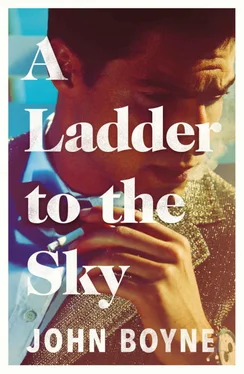
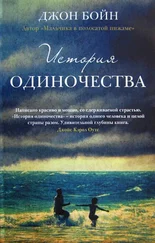
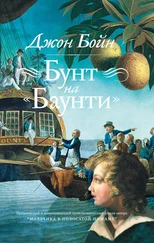
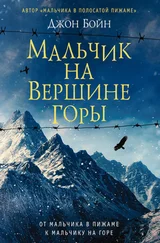
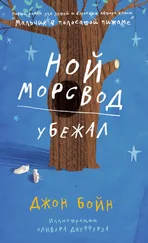
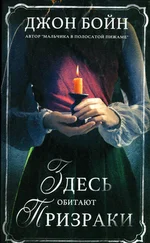
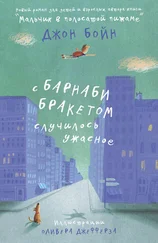
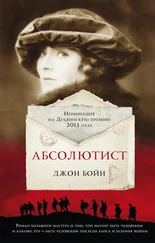
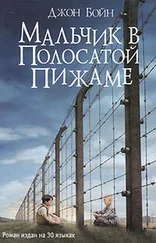
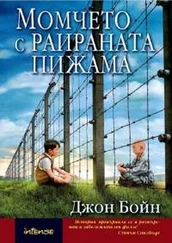

![Джон Бойн - Мальчик в полосатой пижаме [litres]](/books/420547/dzhon-bojn-malchik-v-polosatoj-pizhame-litres-thumb.webp)
